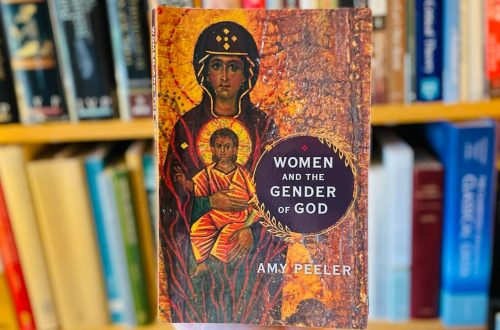 The debate over the moral status of homosexuality within the Anglican Communion has been nothing sort of tragic. Not only has the American branch (the Episcopal Church USA) installed an open homosexual as one of its Bishops, but also Archbishop Rowan Williams has not always spoken plainly about the reason for the growing schism within the wider communion.
The debate over the moral status of homosexuality within the Anglican Communion has been nothing sort of tragic. Not only has the American branch (the Episcopal Church USA) installed an open homosexual as one of its Bishops, but also Archbishop Rowan Williams has not always spoken plainly about the reason for the growing schism within the wider communion.
To cite a case in point, note the Archbishop’s advent letter that was released last week. The letter is a long, complicated treatise that seems to me to be more confusing than clarifying. Buried deep within the verbal morass, the Archbishop writes the following sentence:
“It is too easy to make the debate a standoff between those who are ‘for’ and those who are ‘against’ the welcoming of homosexual people in the Church.”
The Archbishop is suggesting that there is far too much complexity for anyone to give a simple description of the crisis. This is where I think he is wrong. The Episcopal Church USA has not only failed to clearly condemn homosexuality as a sin, it has endorsed the error by consecrating a practicing homosexual Bishop (who has recently announced his engagement and excitement about being a “June bride”). The leaders of the American church are forcing a schism as a result of their moves to normalize (and indeed sanction) homosexuality.
Conservative Episcopalians who are seceding from the American branch of the church are fed up with the Bible-ignoring, God-dishonoring, apostate American bishops who will not stand for biblical truth when it comes to the issue of homosexuality (and a host of other issues, I might add). This is the straw that has broken the camel’s back, so the conservatives are leaving.
It is beyond me why Rowan Williams cannot acknowledge that the current crisis is precisely the result of a “standoff between those who are ‘for’ and those who are ‘against’ the welcoming of homosexual people in the Church.” The issues are very clear. We can only hope and pray that the Archbishop will see things more clearly in the future and find his voice to speak to it with biblical truth.




5 Comments
Matt Svoboda
You know what I think is said… I do not think that he does not know what is right and what is wrong on this issue.
He merely lacks the courage to act on that which is right! It is not only him, it is all the leaders in Americas churches and the denominational leaders. All of them can read the Bible, they all know what it says. This whole problem comes down to the leaders who lack the courage to stand up against men and stand up for God!
Galatians 1: 10 “For am I now seeking the approval of man, or of God? Or am I trying to please man? If I were still trying to please man, I would not be a servant of Christ.”
The Archbishop and many others are not servants of Christ, but of man…
We ought to pray that he will read the book of Joshua and become strong and courageous!
Live the Word
Matt
Andre
Man this is truly heartbreaking! I find it strange that he appeals to what people think instead of God’s word. We would do better to stand on that rather than what we “feel” is right.
Good words Matt I agree!
Benjamin A
These quotes from the letter are foundational to the entire letter as he often refers back to this beginning section for support. I place them here for contextual help only (you must read entire letter or this will make no sense). He wrote:
1.“Because of this recognition, we are able to consult and reflect together on the interpretation of Scripture and to learn in that process. Understanding the Bible is not a private process or something to be undertaken in isolation by one part of the family. Radical change in the way we read cannot be determined by one group or tradition alone.â€
2.“The principle that one local church should not intervene in the life of another is simply a way of expressing this trust that the form of ministry is something we share and that God provides what is needed for each local community.â€
3.“When we are able to recognise biblical faithfulness and authentic ministry in one another, the relation of communion pledges us to support each other’s efforts to win people for Christ and to serve the world in his Name.â€
Then he immediately writes these two paragraphs:
“It is in this context that we must think about the present crisis, which is in significant part a crisis about whether we can fully, honestly and gratefully recognise these gifts in each other.â€
“The debates about sexuality, significant as they may be, are symptoms of our confusion about these basic principles of recognition. It is too easy to make the debate a standoff between those who are ‘for’ and those who are ‘against’ the welcoming of homosexual people in the Church. The Instruments of Communion have consistently and very strongly repeated that it is part of our Christian and Anglican discipleship to condemn homophobic prejudice and violence, to defend the human rights and civil liberties of homosexual people and to offer them the same pastoral care and loving service that we owe to all in Christ’s name. But the deeper question is about what we believe we are free to do, if we seek to be recognisably faithful to Scripture and the moral tradition of the wider Church, with respect to blessing and sanctioning in the name of the Church certain personal decisions about what constitutes an acceptable Christian lifestyle. Insofar as there is currently any consensus in the Communion about this, it is not in favour of change in our discipline or our interpretation of the Bible.â€
He is saying that the debate over homosexual people in the church is a ‘symptom of our confusion about these basic principles of recognition’. Meaning, if they understood the core of what makes them Anglican, their common Communion (the three points mentioned above); they wouldn’t be in these debates ‘between those who are for and those who are against the welcoming of homosexual people in the Church’. Simply making the debate about ‘those who are for and those who are against’ is missing the larger issues. Rightly understand the larger issues would settle other issues as they arise.
He clearly articulates that the church is against homophobic prejudice and violence; and for treating homosexual people with dignity (as any other blatant sinner). But with “respect to blessing and sanctioning in the name of the Church certain personal decisions about what constitutes an acceptable Christian lifestyle. Insofar as there is currently any consensus in the Communion about this, it is not in favor of change in our discipline or our interpretation of the Bible.†Meaning, the consensus in the Communion is not in favor of making homosexual sin an acceptable (non-sinful) lifestyle. This is his way of saying no to homosexual bishops without making it personal (see point #1).
Maybe I have misunderstood what he is saying? Or maybe his way of dealing with the issue is different from the way others think it should be handled. One thing for sure- he needs our pray.
Ali
I think you’ve interpreted him correctly, Benjamin, though I’ve only read what you quoted. I’ve always understood that the Archbishop is pro-homosexual, i.e. does not think it is a sinful lifestyle. I seem to remember that was understood when he first was appointed to his office. Obviously, though, he is not someone who will force his point of view.
GLW Johnson
This has become more than an Anglican problem as similar issues are boiling over in other mainline denominations like the PCUSA and the United Methodist Church. The camel’s nose is also under our big broad ‘Evangelical’ tent as witnessed by the very public posturing of many associated with what goes by the label ‘Emergent’, i.e Brian McLaren, et. al.